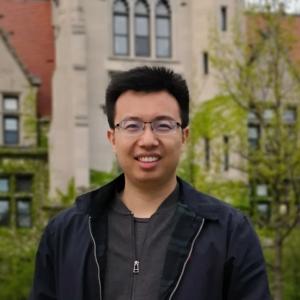Guanghui (George) Lan

Guanghui (George) Lan
Associate Professor
George Lan is an A. Russell Chandler III Professor of Industrial and Systems Engineering at Georgia Institute of Technology. His research and teaching interests lie in theory, algorithms and applications of stochastic optimization and nonlinear programming. Most of his current research concerns the design of efficient algorithms for solving challenging optimization problems, especially those arising from data analytics, machine learning, and reinforcement learning. He is actively pursuing the applications of these methodologies in healthcare and sustainability areas. Dr. Lan serves as the associate editor for Computational Optimization and Applications (2014 – present), Mathematical Programming (2016 – present) and SIAM Journal on Optimization (2016 – present). Dr. Lan is an associate director for the center of machine learning at Georgia Tech.
Chromatin; Epigenetics
IRI Connections:









